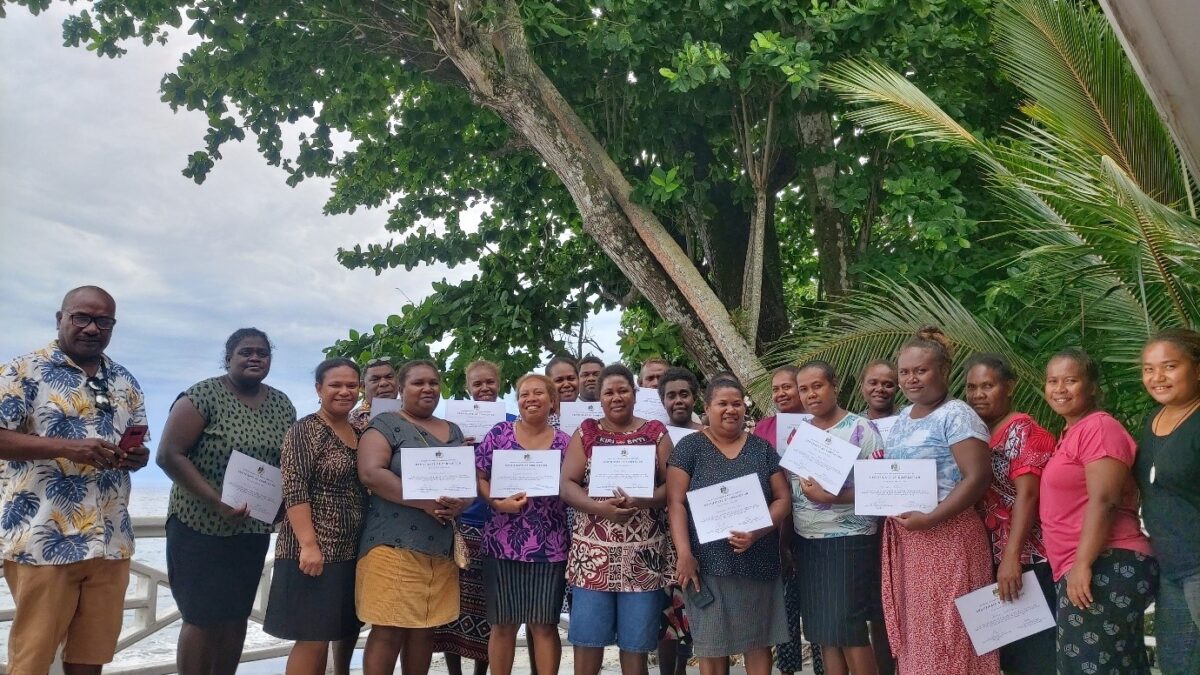

Group photo of facilitators and training participants posing with their certificates.
GP nurses complete High-impact nutrition intervention training
The Ministry of Health and Medical Services (MHMS) National Nutrition Unit and Guadalcanal Nutrition Program, with the support of NRH Paediatrician Consultant and UNICEF, have successfully completed a five-day training of High Impact Nutrition Intervention (HINI) for Guadalcanal Provincial (GP) nurses on Friday, October 27, at the B17 conference room, North West Guadalcanal.
The training is extremely important as it aims to increase nurses’ awareness and knowledge of the HINI, which is known to be highly effective in addressing undernutrition and mortality, especially during the first 1,000 days of a child’s life (from conception to 2 years). The other two important outcomes of the training is to increase the nurses’ skills in providing high-impact nutrition intervention services and to enable nurses to see nutrition programs as part of their daily routine services and not as separate programs or activities.
Health Nutrition Officer and Co-Facilitator, Ms. Jill Losi, said that the training is important for the participants to be able to provide nutritional intervention services throughout the life cycle (from adolescents to pregnancy, lactation, infants, and young children) as a way to prevent malnutrition. The training allows participants to detect, prevent, and manage malnourished children early.
She explained that it also helps participants with specific skills such as performing physical assessment to identify signs of micronutrient deficiencies such as vitamin A and iron deficiency. The assessment includes taking weight, length, and height measurements to identify failure to thrive or stunting early so that appropriate high nutrition intervention services can be offered.
“To prevent micronutrient deficiencies, mothers also need to eat well-nourished diet and understand what constitute a nutritious or healthy diet, know about food fortification, and the importance of pregnant women’s continuous visits to the clinics to get their supplements like folic acid along with antimalarial tablets and deworming tablets.
“Nurses must be well versed with proper hygiene and sanitation as well to prevent pregnant mothers, infant, and young children from getting worms that could cause undernutrition and micronutrient deficiencies”, outlined Ms. Losi.
Having well-nourished children in the community will reduce the number of children requiring hospital care. Meanwhile, the National Nutrition Unit is planning to conduct the first ever HINI training for Isabel Province. The unit is planning to expand training to Temotu and Choiseul provinces next year.
MHMS Press